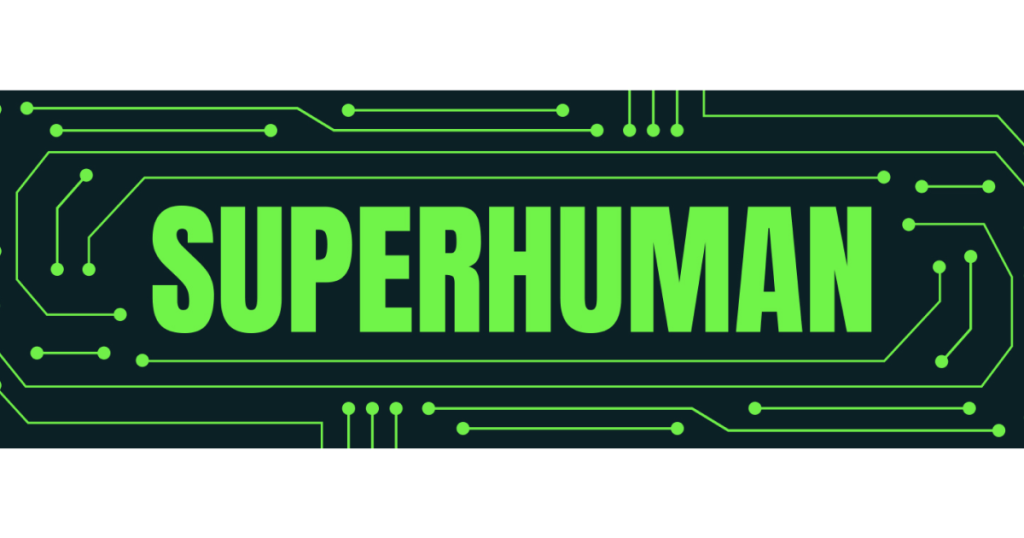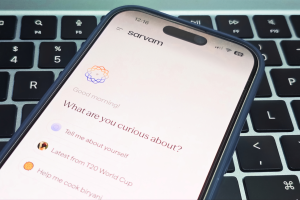Harness the Power of Superhuman AI

Imagine unlocking the potential of artificial intelligence to transform your daily life. With Superhuman AI, this concept is turning into reality for many across the globe. It’s about enhancing productivity and propelling careers forward. But how exactly does AI make a difference? Dive in to explore the groundbreaking impacts this technology is making.
Superhuman AI is not just a buzzword; it’s a movement reshaping industries. Over 800,000 professionals from tech giants like Apple and Google are already on board. They use AI to streamline tasks and create more opportunities. This wave of innovation is about making smarter choices, not working harder. Let’s examine how AI is changing the game.
What is Superhuman AI?
Superhuman AI stands at the heart of modern technological advancements. It’s not merely software; it’s a tool that augments human capabilities. Imagine having a personal assistant who never sleeps and learns continuously. This is AI—adapting to your needs and making life easier.
AI has become an integral part of our daily routines. From checking emails to setting reminders, it’s always working in the background. The beauty of this technology lies in its ability to learn and improve. Every interaction helps it understand you better, making it more efficient and responsive over time.
Remember when computers were giant machines? Now, AI resides quietly in our smartphones. It guides us through traffic, suggests lunch spots, and even decides what movie to watch next. It’s about convenience and efficiency, enhancing life without us even noticing.
In essence, Superhuman AI is revolutionizing how we interact with technology. It’s the silent partner in our pockets, ready to assist, guide, and inform every step of the way. And as AI grows smarter, the possibilities seem endless.
The Impact on Productivity
AI is transforming how we work. It’s like having an extra pair of hands that never tire. Regular tasks that once took hours can be automated, freeing up time for more important endeavors. This shift allows humans to focus on creativity and innovation.
Imagine completing a report in half the time it used to take. With AI, data processing and analysis become lightning-fast. The hours saved can be spent on strategic thinking instead. It’s not just about speed; it’s about enhancing quality and output.
For many businesses, adopting AI means staying competitive. In sectors like finance and healthcare, decisions need to be fast and accurate. AI provides the edge needed by processing vast amounts of information quickly. This capability translates to better service delivery and improved outcomes.
AI in Major Companies
Major companies are harnessing AI to push the boundaries of what’s possible. Giants like Amazon and Microsoft are leading the charge, employing AI in innovative ways that redefine industry standards.
These companies leverage AI for various operations—from logistics to customer service. AI helps predict trends, streamline supply chains, and personalize customer interactions. The results are efficient operations and satisfied customers.
Consider Google, which uses AI to enhance its search algorithms, ensuring users get the most relevant results. AI also curates content, making sure information is timely and personalized.
As these companies innovate, they set trends for others to follow. Their use of AI highlights its potential to revolutionize business practices and achieve unprecedented growth.
AI and Career Advancement
Using AI can significantly boost career prospects. As companies integrate AI into their operations, there’s a growing demand for skilled professionals who can manage and optimize these systems.
AI is driving new job opportunities. Fields like data science and machine learning are expanding rapidly. Professionals with expertise in these areas are becoming invaluable assets to companies looking to innovate.
For job seekers, understanding AI technology can give a competitive edge. It’s about being prepared for the future—adapting to changes and leveraging new tools to enhance professional growth.
Embracing AI skills can lead to exciting career paths. Whether it’s developing algorithms or managing AI projects, opportunities abound for those willing to learn.
The Future of AI
The future of AI is bright and full of possibilities. As technology advances, AI will become even more ingrained in our daily lives, making everything from shopping to healthcare smarter and more efficient.
Think about autonomous vehicles, a field where AI is making significant strides. Soon, commuting may become a time to relax rather than drive. AI learns patterns and adapts, promising safer roads.
In healthcare, AI is already improving diagnostics and patient care. It analyzes medical data quickly, assisting doctors in making informed decisions. This means better outcomes and personalized treatment plans.
The potential of AI is vast. It’s not just about what it can do today, but what it will enable tomorrow. From smart cities to personalized education, the possibilities are limitless.
Navigating AI Challenges
As AI advances, it’s crucial to address challenges like privacy and ethical use. Balancing innovation with responsibility ensures this technology benefits everyone.
Privacy concerns are ever-present with AI’s capability to process vast data. Safeguarding personal information is vital. Industries must prioritize transparency and ethical standards.
Think of AI as a double-edged sword, offering immense benefits but also requiring careful handling. Policies and regulations need to keep pace with technological advancements to maintain public trust.
Challenges also include workforce displacement. As AI automates tasks, some jobs become obsolete. However, it also creates new opportunities—requiring a shift in skills and workforce strategies.
AI in Everyday Life
AI is seamlessly integrating into everyday life, transforming mundane tasks into efficient processes. From smart homes to digital assistants, it’s making life more convenient.
Smartphones are now equipped with AI capabilities. They recognize faces, respond to voice commands, and suggest apps based on usage. This technology anticipates needs and desires before they’re even realized.
Home devices like thermostats and lights are now intelligent, adjusting settings based on preferences and habits. This results in energy savings and comfort, underscoring AI’s practical benefits.
AI and Learning
Education is experiencing an AI-driven metamorphosis. It’s personalizing learning experiences, tailoring teaching methods to individual needs and paces.
Imagine a classroom where lessons adapt to each student’s progress. AI analyzes performance and adjusts accordingly, ensuring effective learning outcomes.
For educators, AI is a powerful tool, offering insights into student engagement and understanding. It aids in creating tailored content and feedback, enhancing teaching quality.
The rise of AI in education promises a future where learning is not standardized. It’s about creating environments that nurture curiosity and innovation.
Social Media and AI
AI plays a significant role in shaping social media experiences, analyzing data to suggest connections and content. It’s the unseen force personalizing user feeds.
Platforms like Facebook and Twitter use AI to curate content, showing relevant posts and ads. This personalized approach keeps users engaged and informed.
While AI enhances user engagement, it also raises questions about echo chambers and misinformation. Balancing user experience with ethical concerns is key in the digital age.
Superhuman AI ushers in a new era where possibilities expand and boundaries blur. Adopting this technology isn’t just about keeping up; it’s about leading change. As AI continues to evolve, it’s up to us to harness its power responsibly, making choices that benefit society as a whole.





